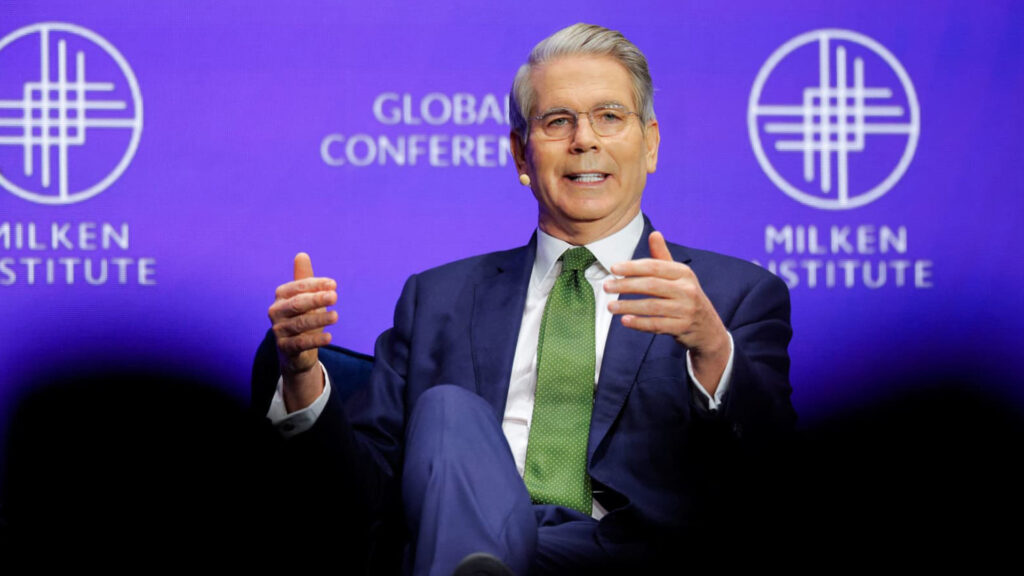
Newsletter Subscribe
Enter your email address below and subscribe to our newsletter

Enter your email address below and subscribe to our newsletter

Secretary Scott Bessent outlines the Trump administration's new economic agenda at the Milken Institute, emphasizing reindustrialization, deregulation, and global capital attraction.
At the 28th Milken Institute Global Conference in California, Secretary Scott Bessent delivered a powerful address that echoed a reinvigorated America First economic vision under the returning leadership of President Donald J. Trump.
As over 1,000 global speakers and 200 panels gathered to forge actionable global finance, health innovation, and human capital strategies, Bessent’s remarks drew attention to the Trump administration’s aggressive economic reindustrialization agenda.
In this era of global volatility, the speech underscored the United States’ unwavering role as the sheltering point of global capital, opportunity, and resilience.
Secretary Bessent articulated the administration’s commitment to structural reforms through three interlocking economic levers:
These mutually reinforcing efforts set the stage for a massive reindustrialization effort that aims to strengthen national security, job creation, and innovation.
Responding to concerns about potential economic isolationism, Bessent maintained that “reindustrialization” and global engagement are not mutually exclusive. In his view, the U.S. seeks stronger trade terms, not withdrawal.
The administration envisions a “beautiful rebalancing” with countries like China, where U.S. industry is protected while encouraging consumption-driven economic policies abroad. President Trump’s controversial yet effective methods, such as pressuring NATO allies to meet defense spending, serve as blueprints for trade renegotiations.
One of the most compelling revelations in Bessent’s remarks was the Trump administration’s strategic economic agreement with Ukraine. Far from being a symbolic gesture, this deal:
The equity-based agreement, with no debt traps or coercive lending, set a precedent for future U.S.-led economic alliances.
Bessent highlighted the importance of the Financial Stability Oversight Council (FSOC) and his leadership in deregulating financial institutions. The explosion of private credit markets signals pent-up demand for less constrained capital formation, something Treasury now seeks to facilitate.
AI and quantum technology are national priorities on the innovation frontier. In Bessent’s view, maintaining American dominance in these areas is not optional: “If we don’t win in AI, everything else doesn’t matter.”
The most profound section of Bessent’s remarks was his redefinition of the American Dream. It’s not just prosperity for the elite or tech giants. It’s a vision where children of steelworkers in Pittsburgh can become Silicon Valley CEOs—or remain in their communities with dignity, stability, and opportunity.
He underscored that the Trump economic plan is not about picking winners but creating fertile ground for all Americans to succeed through reduced federal dependency, increased private sector vitality, and smart deregulation.
Bessent, a long-time asset manager, warned of the dangers posed by unchecked federal deficits. The strategy is twofold:
Treasury plans to “re-leverage the private sector” through capital access while simultaneously shedding bureaucratic bloat in Washington.
The broader conference reminded attendees that even with $500 trillion in global wealth, one in 11 people lives on less than $2 a day, and billions lack access to basic internet services. This moral and economic divide is not from lack of resources, but lack of common will.
Technology, innovation, and capital must work in unison—not for a privileged few, but for the world. The Trump administration seeks to lead this charge by proving that an America First economy can still build a better world.